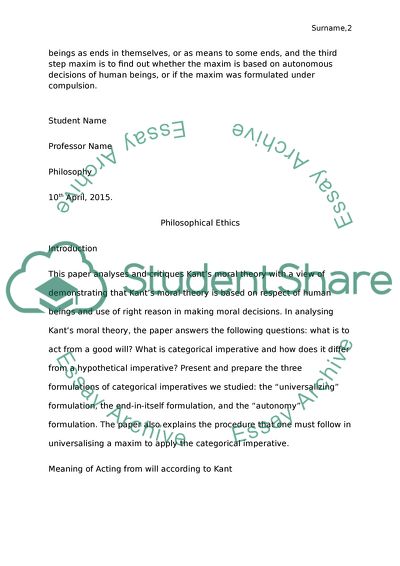Cite this document
(Philosophical Ethics Essay Example | Topics and Well Written Essays - 2000 words, n.d.)
Philosophical Ethics Essay Example | Topics and Well Written Essays - 2000 words. https://studentshare.org/philosophy/1869295-philosophical-ethics
Philosophical Ethics Essay Example | Topics and Well Written Essays - 2000 words. https://studentshare.org/philosophy/1869295-philosophical-ethics
(Philosophical Ethics Essay Example | Topics and Well Written Essays - 2000 Words)
Philosophical Ethics Essay Example | Topics and Well Written Essays - 2000 Words. https://studentshare.org/philosophy/1869295-philosophical-ethics.
Philosophical Ethics Essay Example | Topics and Well Written Essays - 2000 Words. https://studentshare.org/philosophy/1869295-philosophical-ethics.
“Philosophical Ethics Essay Example | Topics and Well Written Essays - 2000 Words”. https://studentshare.org/philosophy/1869295-philosophical-ethics.


